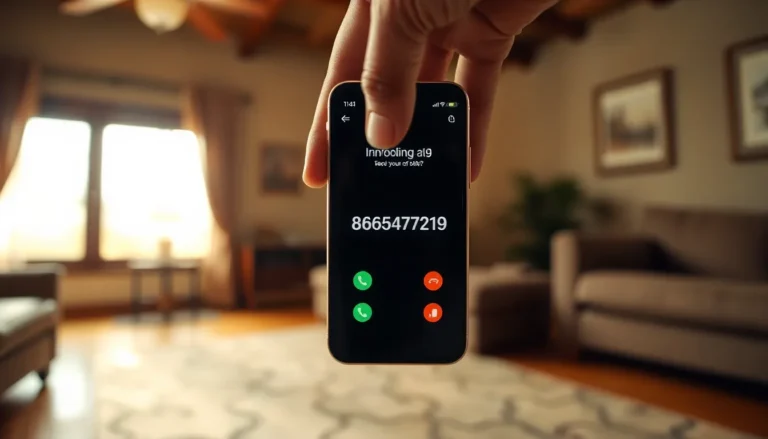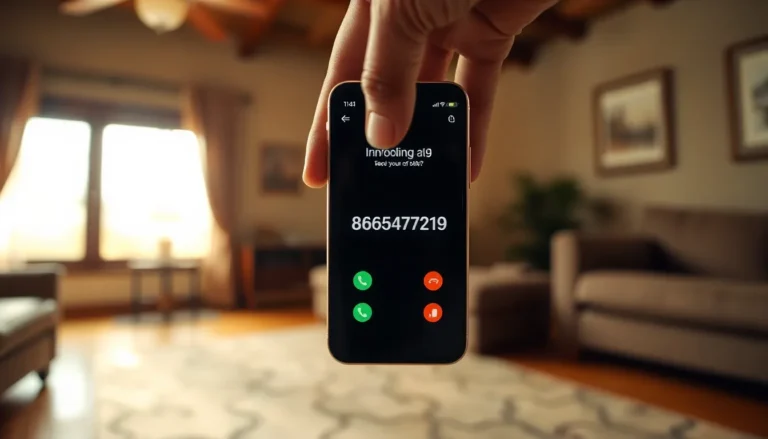Table of Contents
ToggleIn a world where screens dominate every waking moment, mastering screen discipline is like finding the holy grail of productivity. Picture this: instead of mindlessly scrolling through cat memes or watching yet another cooking video, one could harness that time to achieve goals and maybe even finish that book gathering dust on the shelf.
Screen discipline isn’t just about limiting screen time; it’s about reclaiming control in a digital jungle. It’s the superhero cape everyone needs but often forgets to wear. With a few simple strategies, anyone can transform from a distracted zombie into a focused dynamo. So why not dive into the art of screen discipline and discover how to make screens work for you rather than against you? Your future self will thank you—after all, who wouldn’t want to be the master of their own digital domain?
Understanding Screen Discipline
Screen discipline entails managing one’s interaction with digital devices to enhance focus and productivity. It represents a shift from passive consumption to intentional use of technology.
Definition of Screen Discipline
Screen discipline refers to the ability to control screen usage, ensuring that engagement with devices aligns with personal and professional goals. It emphasizes intentional interaction rather than mindless scrolling. By setting boundaries and standards, individuals can foster healthier habits. Disciplined screen usage leads to improved attention and less time wasted on distractions.
Importance in Modern Life
Screen discipline plays a crucial role in today’s fast-paced digital environment. Excessive screen time can hinder productivity and decrease overall well-being. Establishing discipline helps combat common issues like digital burnout and loss of focus. Research shows that individuals with strong screen discipline experience increased efficiency and clarity in their tasks. Prioritizing screen discipline enables balanced digital consumption and supports mental health, making technology a beneficial resource rather than a hindrance.
Benefits of Practicing Screen Discipline

Practicing screen discipline offers several benefits that contribute to improved efficiency and overall well-being.
Improved Focus and Productivity
Enhanced concentration stems from intentional screen use. Individuals can prioritize tasks effectively by setting boundaries around device engagement. Reducing distractions leads to increased task completion rates. Time management improves, as users adopt techniques like the Pomodoro method to maintain focus. Research supports that individuals with defined screen routines achieve greater output and clarity in their work. Enhanced focus not only boosts productivity but also fosters a sense of accomplishment.
Enhanced Mental Well-being
Engaging mindfully with screens contributes positively to mental health. Individuals report lower stress levels when practicing screen discipline. Prioritizing real-life interactions becomes easier as screen time decreases. Fewer distractions correlate with improved emotional regulation, enhancing overall life satisfaction. Studies show that intentional screen usage can prevent digital burnout, promoting a healthier balance between technology and daily life. By cultivating healthy digital habits, individuals enhance their overall mental resilience and well-being.
Challenges to Screen Discipline
Maintaining screen discipline faces several significant challenges. These challenges can impact focus and productivity, making it essential to identify them.
Digital Distractions
Digital distractions significantly disrupt workflow. Notifications from emails, messages, or apps demand attention, pulling individuals away from tasks. Even brief interruptions can lead to a loss of focus, causing people to waste valuable time. Research shows that it takes an average of 23 minutes to regain concentration after a distraction. Techniques like turning off notifications or using focus apps can help mitigate these interruptions. Implementing these strategies encourages sustained attention and minimizes the impact of distractions on performance.
Social Media Influence
Social media platforms captivate users with endless content. Scrolling through feeds can consume significant time, leading to decreased productivity. Studies indicate that individuals spend an average of 2 hours and 31 minutes per day on social networks. Excessively engaging with social media can divert attention from personal and professional goals. Setting time limits for social media usage can promote discipline. By consciously managing interactions with these platforms, individuals can reclaim focus and align their digital habits with their objectives.
Strategies for Developing Screen Discipline
Developing screen discipline is vital for enhancing productivity and focus. Implementing specific strategies can lead to more intentional interactions with digital devices.
Setting Boundaries
Establishing clear boundaries is crucial for managing screen time effectively. Set limits on when and where screens can be used. Scheduling specific times for checking emails or social media reduces interruptions and enhances concentration. Creating tech-free zones, such as during meals or before bedtime, fosters healthier habits. Designate certain hours exclusively for work tasks to maintain productivity. Communicating these boundaries with others further reinforces commitment, ensuring accountability.
Utilizing Technology Mindfully
Mindful technology usage transforms screen interactions into purposeful actions. Start by evaluating which applications and websites align with personal goals. Prioritize essential tasks by using tools like task managers or focus apps that minimize distractions. Engage in deep work sessions where notifications are disabled, allowing for undisturbed focus. Reflect on screen time regularly to assess habits and adjust as needed. Engaging mindfully with technology supports mental well-being and helps in avoiding digital burnout.
Embracing screen discipline is essential for navigating the digital landscape effectively. By adopting intentional habits and setting clear boundaries, individuals can transform their relationship with technology. This proactive approach not only enhances productivity but also nurtures mental well-being.
As distractions multiply, the ability to focus becomes increasingly valuable. With consistent practice and reflection, anyone can reclaim their time and energy from digital interruptions. Screen discipline isn’t just about limiting usage; it’s about making technology work for personal and professional success.
Through mindful engagement and a commitment to healthier digital habits, individuals can foster a more balanced and fulfilling life in this screen-centric world.






